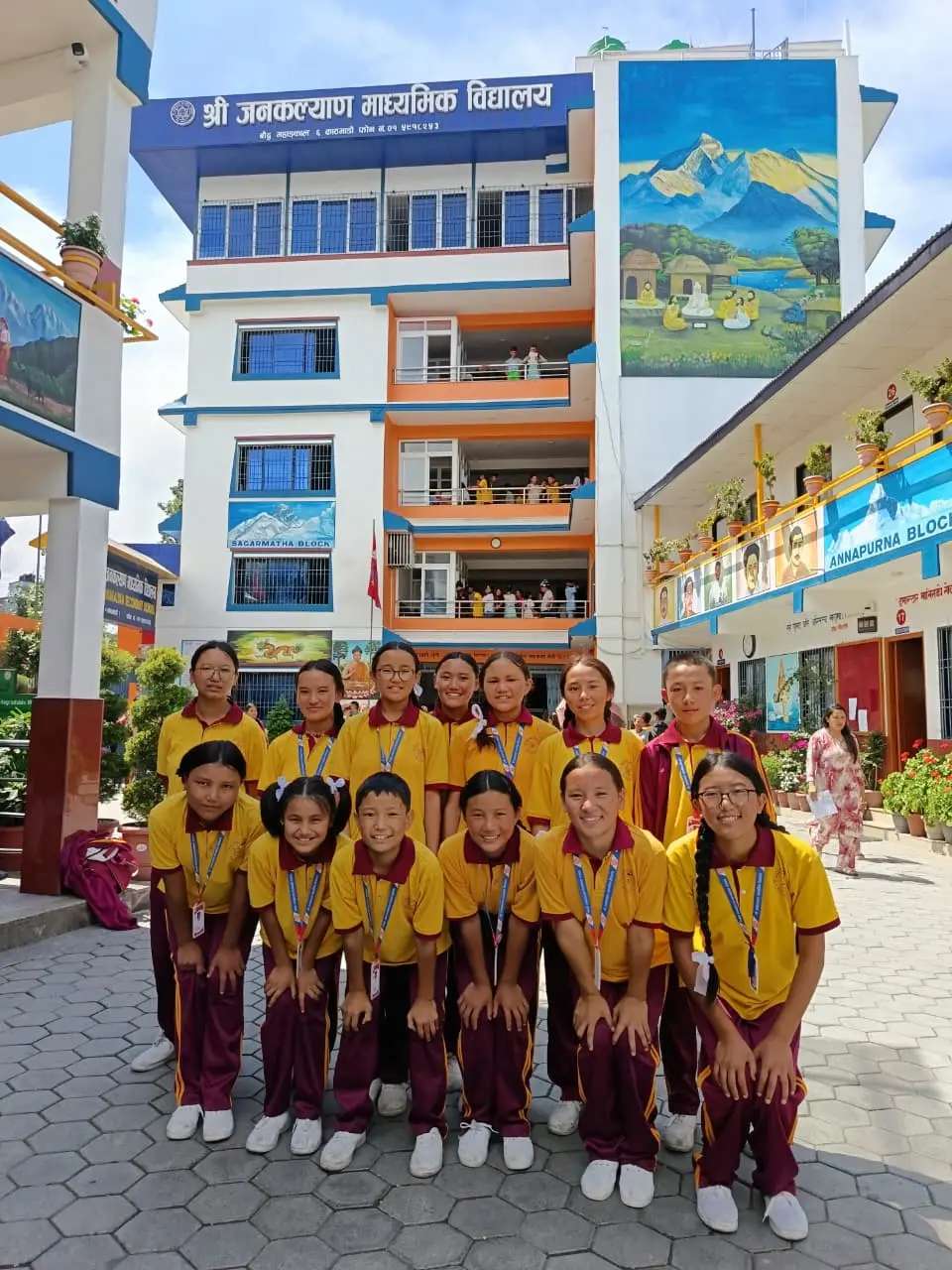
Education
At Nyisal Hostel, education is more than academics—it is about giving children the knowledge and skills they need for a brighter future.
- Schooling at Janakalyan School: All children are enrolled at Shree Janakalyan Secondary School in Boudha, Kathmandu, where they study core subjects like English, Nepali, mathematics, science, and social studies.
- Extra Tuition: Since government schools often have limited resources, we provide extra tuition classes in the hostel to strengthen English, science, and other subjects.
- Tibetan Language & Culture: Children receive daily lessons in Tibetan language, prayers, and cultural traditions.
This helps them preserve their identity and stay connected with their roots while studying in the city.
- Life Skills & Vocational Training: Older students are encouraged to learn practical skills such as computer literacy, sewing and tailoring, handicrafts, and basic technical/engineering knowledge.
- Extracurricular Activities: Sports, music, art, and group activities are a regular part of hostel life, promoting creativity, teamwork, and confidence.
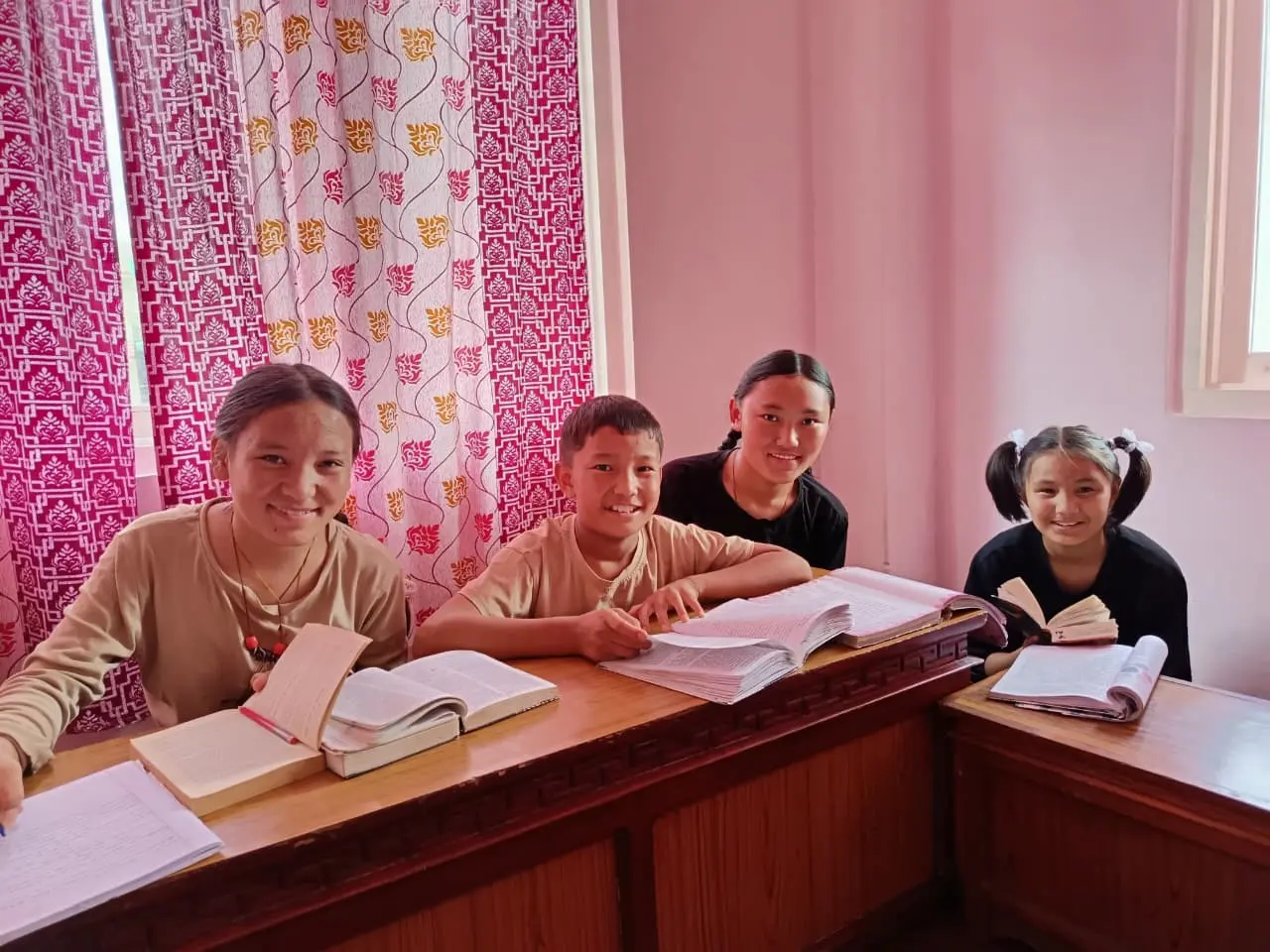
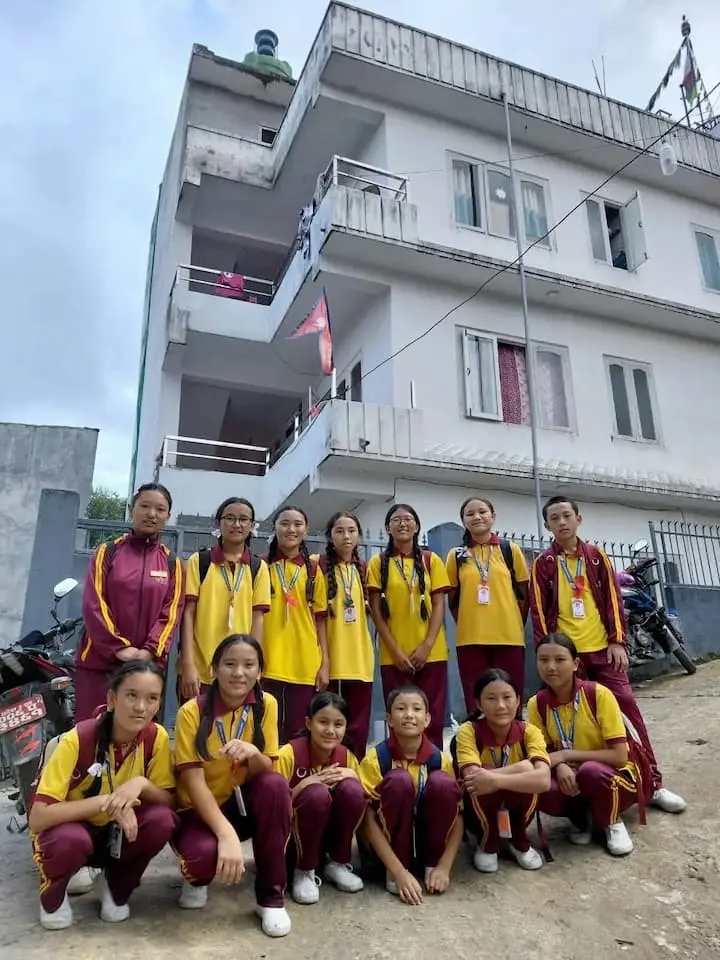
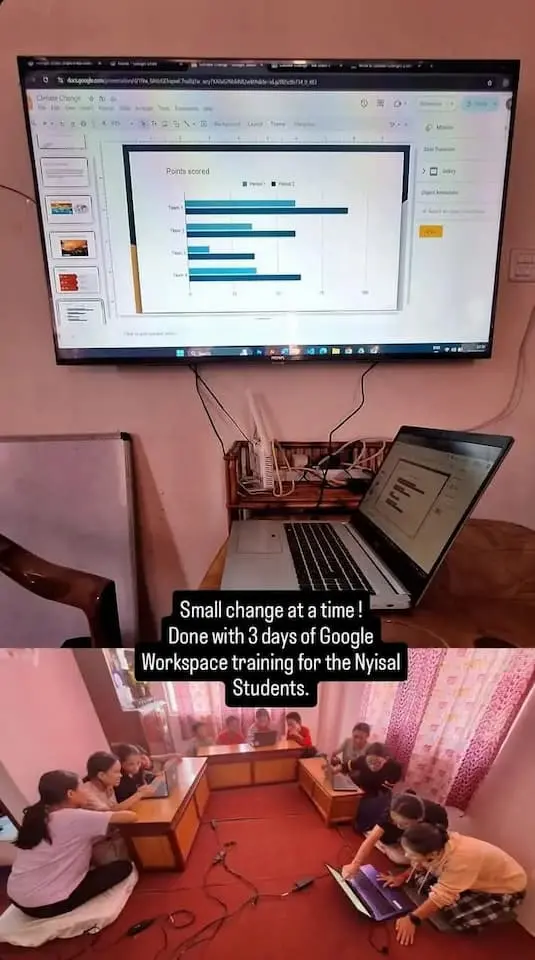
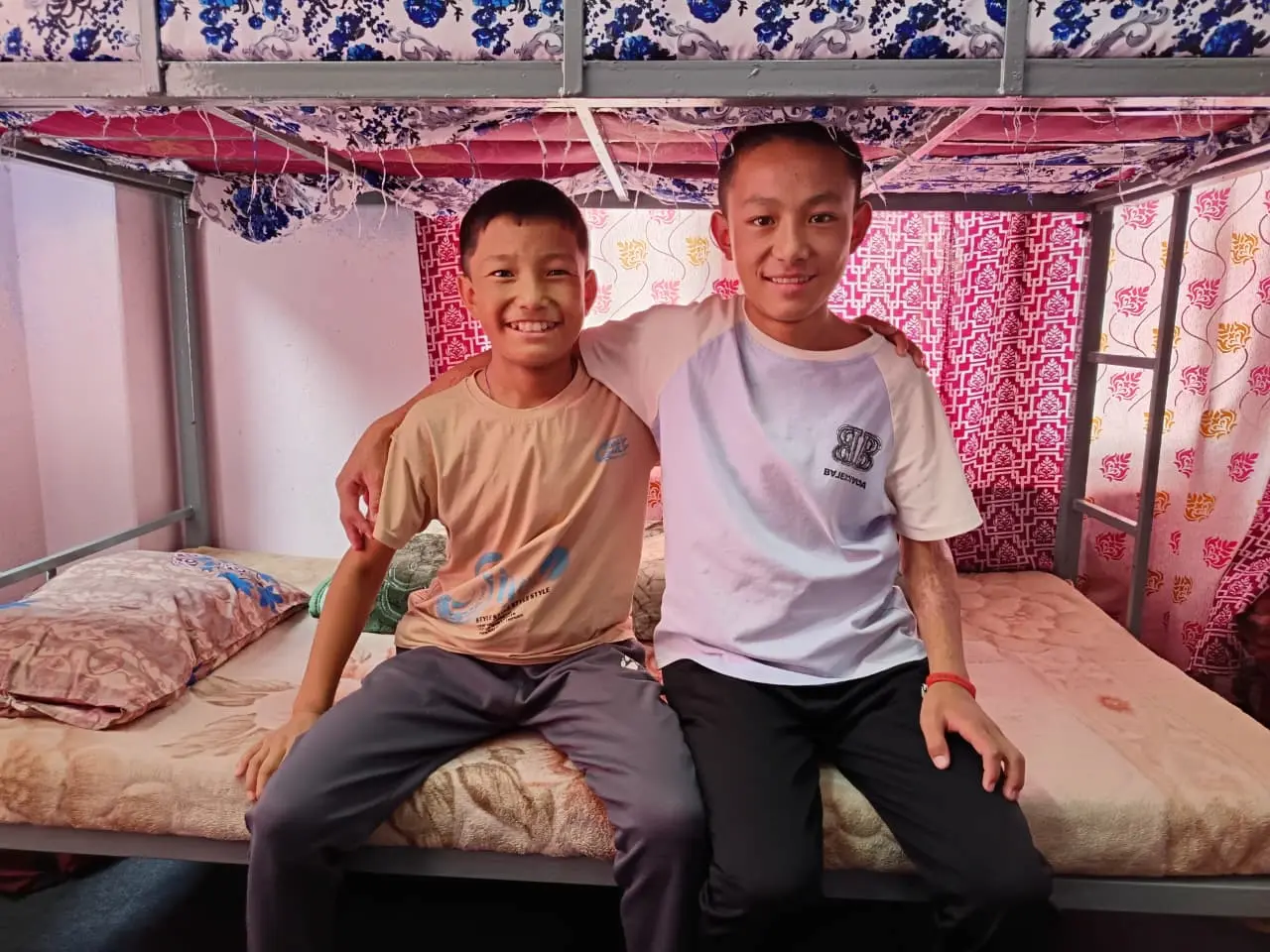
Accommodation
Nyisal Hostel is not just a place to stay—it is a safe and nurturing home for children from Nyisal village. We make sure that every child feels supported, cared for, and part of a family.
Living Arrangements: Children live together in shared rooms with a warm, family-like atmosphere. Rooms are clean, well-ventilated, and organized to give them a comfortable environment.
Healthy Meals: We provide nutritious meals every day, ensuring children grow up healthy and strong. Meals are prepared with care, balancing both traditional Tibetan food and Nepali staples.
Dedicated Caretakers: Our hostel is lovingly managed by Pema and Ten Norbu, who live with the children and guide them in studies, daily routines, and personal growth. They are like parents—offering care, discipline, and emotional support.
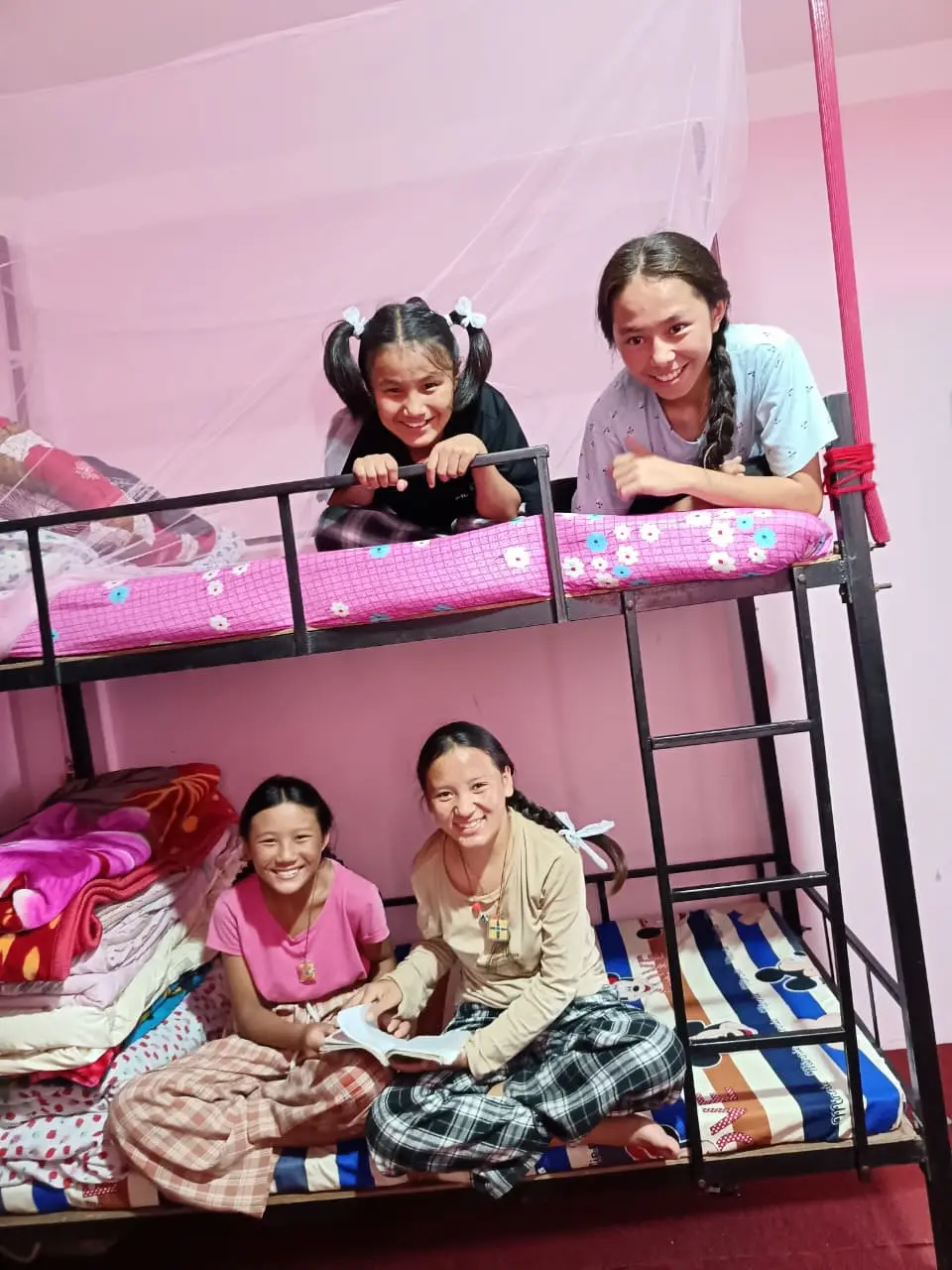
Study & Common Spaces: The hostel includes study rooms, a dining area, and open spaces where children can read, play, and interact. This helps balance their academic and personal growth.
Family Environment: More than just roommates, the children live like brothers and sisters—supporting one another, sharing responsibilities, and growing together as a family.
Safety & Well-being: The hostel provides a safe environment, medical care when needed, and emotional support so children feel secure and loved.
